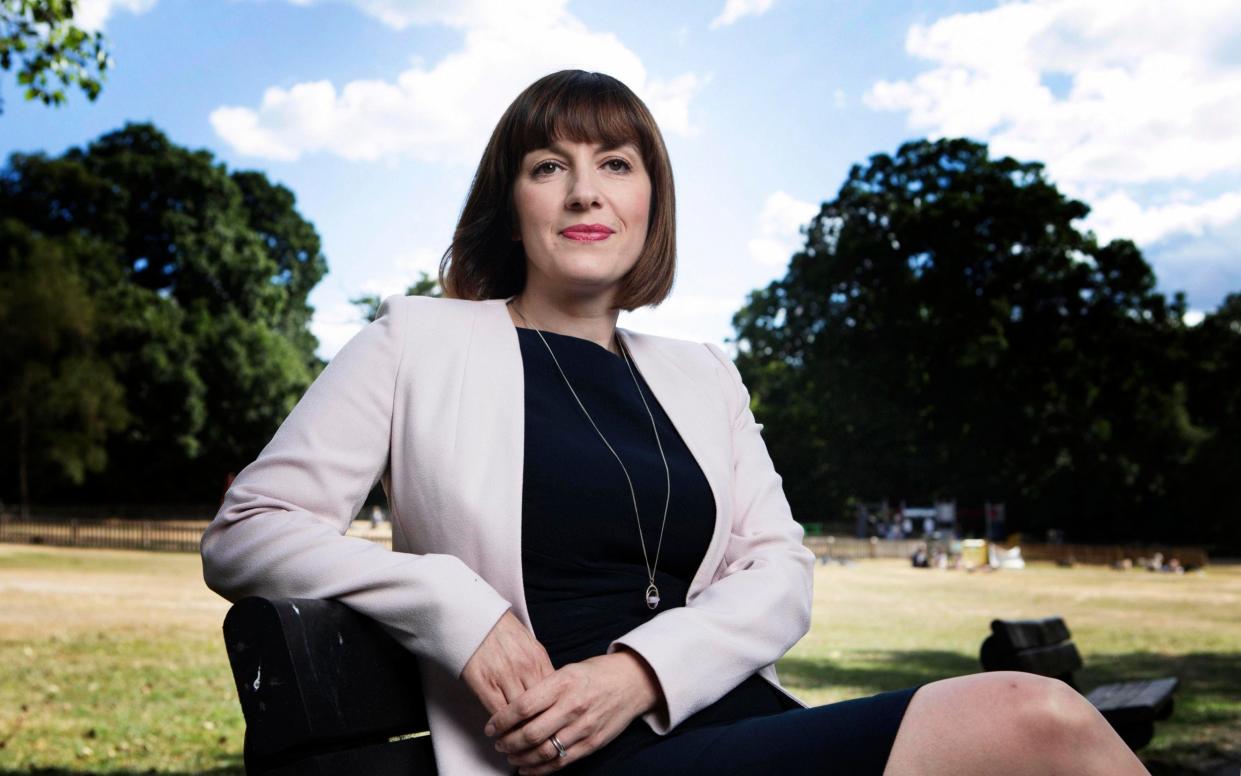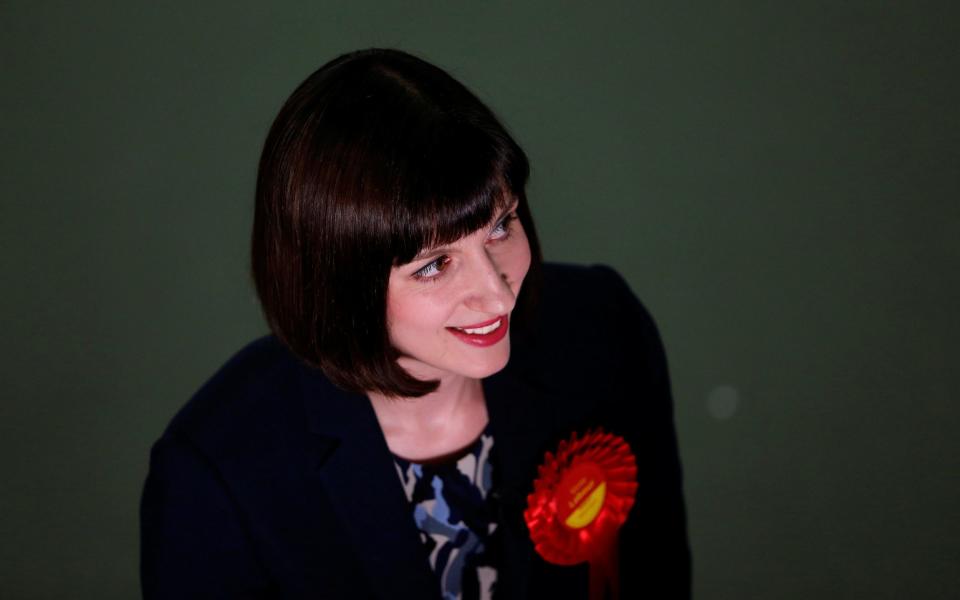Blair-era university admission targets were wrong, admits Labour

Labour was wrong to put Blair-era targets on the number of people who go to university, the party’s shadow education secretary has suggested.
Bridget Phillipson said any student who wants to go to university should be allowed, as she rejected the former Labour leader’s 50 per cent target of school leavers in higher education.
In an interview with The Telegraph, Ms Phillipson also called on the Conservatives to stop arguing about the reintroduction of grammar schools, declaring them a “distraction” from the post-Covid education backlog.
Labour has set out a “children’s recovery plan” based on measures outside the classroom to improve educational outcomes and pupils’ wellbeing, including breakfast clubs, more mental health support for children and an extension of free school meals over the summer break.
The Government has already launched an education recovery package that will cost £3.1 billion in total and is worth £310 for every student, but Ms Phillipson said it offers too little to beat Covid backlogs.

On higher education, the party is keen to distance itself from the Blair-era target on university admissions, which was set in a party conference speech in September 1999.
The target was reached 20 years later, and Mr Blair has since said he thinks the new target should be 70 per cent.
But Ms Phillipson said Labour now believes such a target amounts to ministers telling some parents that university “is not for their children”.
“I think young people should have options available to them and should be able to pursue what’s right for them,” she said.
“That, however, isn’t the situation at the moment. For all the talk of 50 per cent, it’s not 50 per cent of young people in Sunderland who go to university.
“I don’t think it’s about putting a target on it. It’s about young people having a genuine choice about what’s right for their future.
“They should be able to pursue that but it shouldn’t be that everything rests on what you decide at the age of 18.”
Ms Phillipson, MP for Sunderland, was brought up less than 10 miles away in Washington, by a single mother who took her to Labour Party meetings as a child.
“If I didn’t go along, she didn’t get to go,” she said.
“So I would kind of sit in the corner and mess about, and then as I got older I became more interested and I saw that politics was a way of changing my community.

Ms Phillipson said her and her mother have always been “incredibly close”, although she was also close to her grandfather Pierce, a former nurse.
At Oxford, where she studied history, Ms Phillipson said she experienced a “culture shock” after meeting “pally” posh students who asked what school she went to.
“I remember saying, ‘well, I could tell you which school I went to, but I can guarantee you never would have heard of it’,” she said.
“I would tell people where I was from, and they had never heard of that either. Because the numbers of young people from private schools was much higher then than it is now.
“There was a certain kind of pally attitude where people who went to certain schools and many of them knew one another before they arrived.
“If you came from a state school in the North East, you felt a bit more on your own. And you have to kind of forge your own way.”
On leaving Oxford, she met her husband Lawrence in a pub in Newcastle and said “the rest was history”.
The couple live in North London and have two children, aged six and 10.
‘Parent’s point of view’
Ms Phillipson said she sees her education brief “from a parent’s point of view”, but added that her children’s teachers are too “professional” to ask her about political matters at parents’ evenings.
“Being a parent is probably the biggest responsibility you’ll ever have in your life, never mind being shadow secretary of state,” she said.
Ms Phillipson added she thinks fondly of her time at school and now believes the Government should spend more time focussing on comprehensive schools like hers, than on rehashing debates about grammar schools.
Both Rishi Sunak and Liz Truss have said they would lift a Blair-era ban on new grammar schools being built, in response to clamour from the Tory back benches on the issue.
“You can always tell that the government’s getting desperate when this one resurfaces around grammar schools,” she said, branding the debate “a complete and utter distraction from the big challenges we face as a country”.
“Rather than talking about grammar schools and the small number of children, we should be talking about how we give all of our children the opportunity to thrive and to succeed in life.”
Labour will not knock down grammar schools
But despite Labour maintaining its Corbyn-era policy that private schools should have their charitable status stripped, Ms Phillipson said she is not interested in “big structural reform” and that Labour would not knock down existing grammar schools if they win the next election.
“I think what matters is what goes on in the classroom, not the name above the door of a school,” she said.
The Independent Schools Council (ISC) has already warned that the party’s policy to remove VAT relief for private schools would lead to the closure of smaller institutions.
Confronted with that idea, the shadow education secretary said: “I don’t think Eton has got anything to worry about.
“In many parts of the country you barely have any private schools. That is the reality.
“However, you’ve got 200,000 primary-aged children in areas that don’t have a good or outstanding primary School.
“That should be what we focus our efforts on and we would use the money that we raise through ending the charitable status of private schools to make that a reality.”

Ms Phillipson insisted that she is not interested in the Labour leadership, and that her “dream job” is being education secretary.
But she said she thought Labour should have a woman in the top job next.
Sir Keir Starmer is Labour’s 24th consecutive male leader, excluding Margaret Beckett and Harriet Harman, who were respectively acting leaders after the death of John Smith and the resignations of Gordon Brown and Ed Miliband.
“Of course, I’d love to see a female leader of the Labour Party,” she said.
“I voted for Yvette Cooper back in 2015 because I thought she was brilliant, but also I thought it would have been great to have a woman leading the party.
“But I think Keir Starmer will be a fantastic prime minister.”

 Yahoo Movies
Yahoo Movies 
